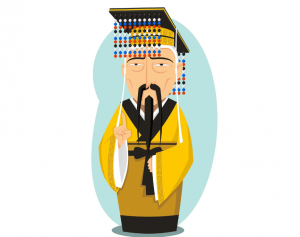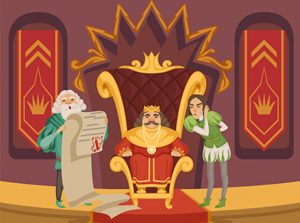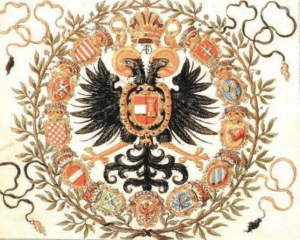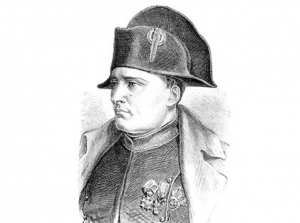Chinese Culture| What’s the difference between an emperor and a king?
When you read history books or listen to historical stories, you must have heard the words emperor and king. For example, ancient China and Rome used the word emperor, while France and England used the word king.
Both the emperor and the king are the most powerful people in a country. So have you ever wondered what the difference is between the two? Today we will talk about the difference between an emperor and a king.
To put it simply, the emperor is in a higher position than the king, the emperor has more power and is in charge of a wider and bigger territory. This is because the place the emperor owns is called an empire, while the place the king owns is called a kingdom. There may be many kingdoms within an empire.

(Image of the Emperor in Ancient China)
However, this is a general situation, and the reality is much more complex, so we can’t simply conclude that an emperor is necessarily more powerful than a king.

(Image of the king in the West)
Take the old Europe, for example. For a long time, the European continent had only one empire, the Holy Roman Empire. After the 16th century, that emperor’s position was held by a family, the Habsburgs.

(The Habsburg family coat of arms)
Later, the Holy Roman Empire fell and the Habsburgs became emperors of a new empire, the Austrian Empire. Then Austria was ruled jointly with Hungary, which became the Austro-Hungarian Empire. Under this huge empire, there were many small countries, which each had their own kings, such as the King of Spain, the King of the Duchy of Naples, and so on.
For a long time, on the continent of Europe, these small countries ran themselves, with the king in charge and the emperor not able to interfere. There were even some local kings who had the power to elect the emperor of the Holy Roman Empire, and these kings had a special name, called “Elector of the Marquis”.
By the 17th century, many small states in Europe became more and more powerful, and the leaders of these places could even call themselves emperors and call their countries empires. One of these leaders was Napoleon Bonaparte.

(Napoleon)
In China, during the Zhou Dynasty, there was only one emperor of Zhou, but the following states: Zhao, Chu, Qin, and others, all governed themselves and basically did not heed the emperor. This emperor had very little real power over his empire. This period was known as “Spring and Autumn and Warring States”. During the Qin dynasty, China was unified under one emperor, kings were eliminated, and there was less internal warring.
Now you know, an emperor is one step above a king, but in reality, a king can run his own country and does not take orders from the emperor.
If you want to learn more about Chinese culture, go to lingo bus and access unlimited Chinese resources.

